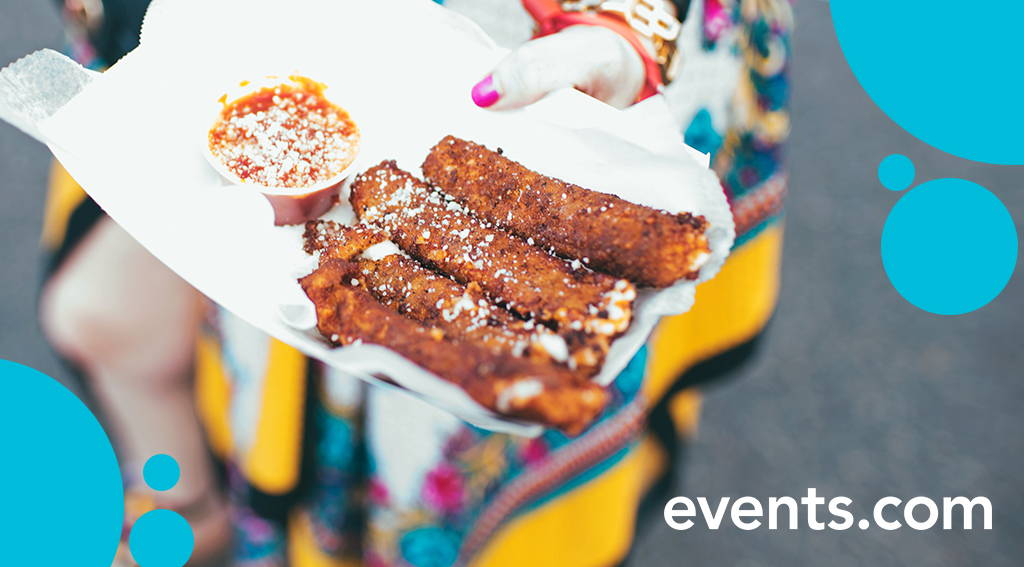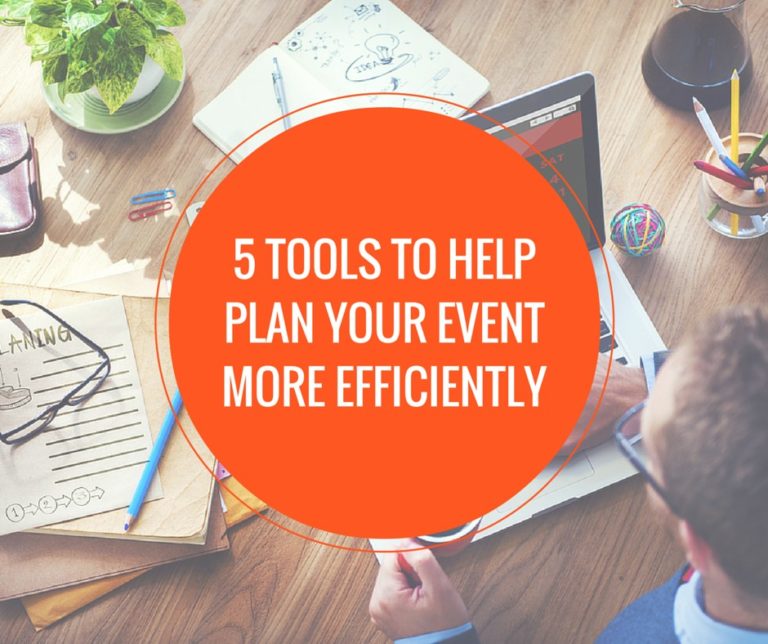Hosting special events like a food festival can be quite a challenge, but the benefits are absolutely worth it. Food has a unique way of uniting people and creating a positive experience. Food festivals can also be a way to highlight local food talent, bring new customers into restaurants, and showcase local and international food festival cuisine.
Organizing a food event requires more than just hiring a few food trucks and food carts. As an event host, it’s essential to take care of all the planning aspects so that your food festival is successful. If you’re wondering how to plan a festival, following these eight steps will help.
1. Set Clear Objectives and Goals
Getting your big dreams down on paper can help you plan your event from start to finish. One popular approach is the SMART goal method, which recommends goals that follow the SMART acronym: specific, measurable, achievable, relevant, and time-based.
Think about what you want your event to achieve. Consider why you’re hosting the event and what you’d like guests and participants to take away from it. For a food festival, your goals could include hitting a revenue milestone, featuring a certain number of international cuisine choices, or helping vendors to grow their e-mail lists.
2. Assemble Your Dream Team
In addition to awesome food vendors and attendees, you’ll also need staff to help manage your event and ensure things go smoothly. Some of the most vital parts of your team will be marketers, logistics professionals, security officers, janitors, ushers, and vendor assistants to help manage food orders. Online job boards, volunteer organizations, and local job fairs can help fill these roles.
Don’t forget about entertainment. Whether with a local band or a slate of food industry speakers, engaging your attendees’ eyes and ears while they feast is a good idea. Since you’ll likely have various cultural foods involved, think about incorporating some cultural performances, too.
3. Choose the Ideal Location and Date
Aside from the food, the location and date are two of the most important factors to consider when planning your festival. The venue needs to be spacious enough to accommodate all of your vendors and attendees. Your vendors should each have adequate room to showcase their cuisine.
Beyond that, make sure your venue is convenient and accessible, meaning that your attendees can find, enter, and exit your venue safely, as well as have access to amenities such as electricity, running water, and bathrooms. Be sure that there’s ample seating, too.
As for the date, make sure that it doesn’t interfere with any holidays. For example, you wouldn’t want to host your food festival during Easter or the Fourth of July, as people may already have plans for those holidays. You’ll also want to schedule your event to be held during favorable weather conditions because rain and wind can put a damper on an event and those who attend.
4. Create a Budget and Secure Funding
It can be tempting to overindulge, especially when it comes to food festivals. You want your attendees to have an amazing event experience that extends beyond food. Although delicious food will be central to your festival and a large chunk of your budget needs to go toward services from local restaurants and food vendors, you’ll also be spending in other areas.
You’ll need a venue to host your festival, insurance, amenities such as parking, electricity, and water supply, marketing tools, staff, décor to set the scene, entertainment, and any required permits and licensing.
Creating a budget can help guide you in knowing what you’re spending and prevent you from overdoing it. And unfortunately, ticket sales alone will not always cover all the festivities you have in mind. That’s where funding from an event sponsor can save the day. It’s a mutually beneficial situation, with you getting financial wiggle room in exchange for brand exposure or customer information, for example, for your sponsor. You’ll want to create a proposal for prospective sponsors that highlights the benefits they’ll see from joining your team.
5. Curate a Unique and Engaging Food Experience
It’s possible that many of your attendees will be local to your event, having already sampled much of the nearby cuisine. That’s why it’s important to implement the following steps to ensure a unique and engaging experience.
Select a Mix of Regional and Local Food Vendors
Food festivals are a great opportunity for local restaurants and food vendors to showcase their best recipes. But don’t forget about your regional vendors! Being able to showcase their food and draw in new potential customers is a great incentive for vendors to travel to your festival. Extend invitations to those near and far to help with variety. This will be the perfect chance for local guests to try something new.
Offer a Broad Diversity of Cuisine Options
Not everybody enjoys the same cuisines. There are also many people with dietary restrictions, so it’s important to offer a variety of foods. From vegan and vegetarian options to gluten-free à la carte foods, there should be an array of food options for everyone to enjoy. Also consider providing street food, barbecue, and international cuisines for your attendees to try. And, of course, don’t forget the desserts, like funnel cakes, and drinks like craft beer and water.
Incorporate Interactive Experiences and Workshops
While trying new foods will certainly be the highlight of your event, that doesn’t mean you can’t incorporate some interactive experiences and workshops. Consider hiring culinary professionals to teach attendees some easy recipes for food and alcoholic beverages. You can also implement interactive food activities where your attendees help prepare their own food. Consider doing a giveaway or trivia as well, with restaurant gift certificates as prizes.
6. Develop a Comprehensive Marketing Plan
An effective marketing plan can help ensure maximum attendance at your event. While word of mouth can generate some sign-ups, expanding your reach through marketing efforts can attract even more attention. Newspapers can be effective in attracting local attendees, but for those outside your city, you may need to explore other avenues. To reach your target audience, consider using methods such as newsletters, social media posts, or TV and radio ads. Potential guests often search online for things like “food festival near me” or “food truck festival,” so it’s important to brush up on online marketing to rank on search engines, too.
Since you’ll be showcasing local vendors and restaurants, be sure to get them on board with marketing efforts. Give them flyers to hang up in their shops or ask them to post about the festival on their own channels.
7. Ensure a Safe and Enjoyable Festival Environment
Safety should be your number-one priority in hosting a festival. First, don’t overcrowd the venue. People need to have enough room to walk around freely. You’ll also want to make sure to have a ticket-checking system and security on hand to keep out uninvited guests. Provide event maps that outline what guests can expect, as well as exit and entry marks.
Since vendors will likely be preparing food on-site, it’s also important to make sure that any fire hazards are in check. Indoor events should have clear exits in case of an emergency. Have fire extinguishers nearby and staff trained in handling fires.
If you’re hosting an outdoor event, provide your attendees with shaded areas and plenty of drink options to stay hydrated.
And don’t forget about your vendors. Encourage them to take breaks and enjoy the festivities as well.
8. Implement Tools To Measure Success and Gather Feedback
After your event has come to an end, you’ll want to know how successful it was. One way to measure success is by counting the number of ticket sales and attendees. However, that doesn’t show you the whole picture.
Success is more than just attendance. It’s about whether your guests enjoyed the event, and it’s also about engagement — did your guests socialize? Did they try more than one vendor? Did they take part in any of the interactive experiences and workshops?
Feedback is essential to your event’s success. It will help you learn and grow and form connections with your guests. Guests like to be heard, and implementing their feedback will help them feel appreciated. Be sure to gather feedback from your vendors as well on what you could have done differently to make their jobs easier.
There are many digital tools you can use to measure the success of your event and gather feedback, such as surveys and polls. Implement them beforehand so you have an easier way to measure these factors.
Streamline Your Food Festival Planning
A lot of work goes into organizing and hosting a food festival. Fortunately, there are tools that can help streamline the process. With Events.com’s event management software, you’ll have access to all the latest technology for planning your next event. From setting up your event to selling tickets, taking payment, building landing pages, and monitoring and analyzing the success of your event, you’ll have everything you need to host a fantastic food festival.




